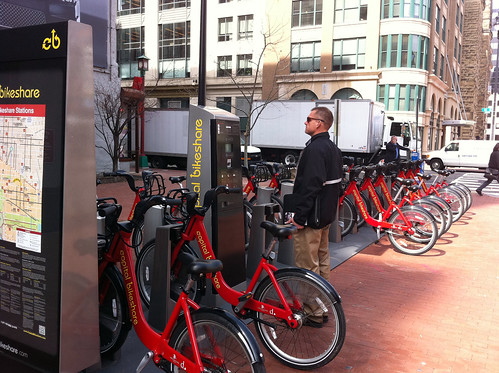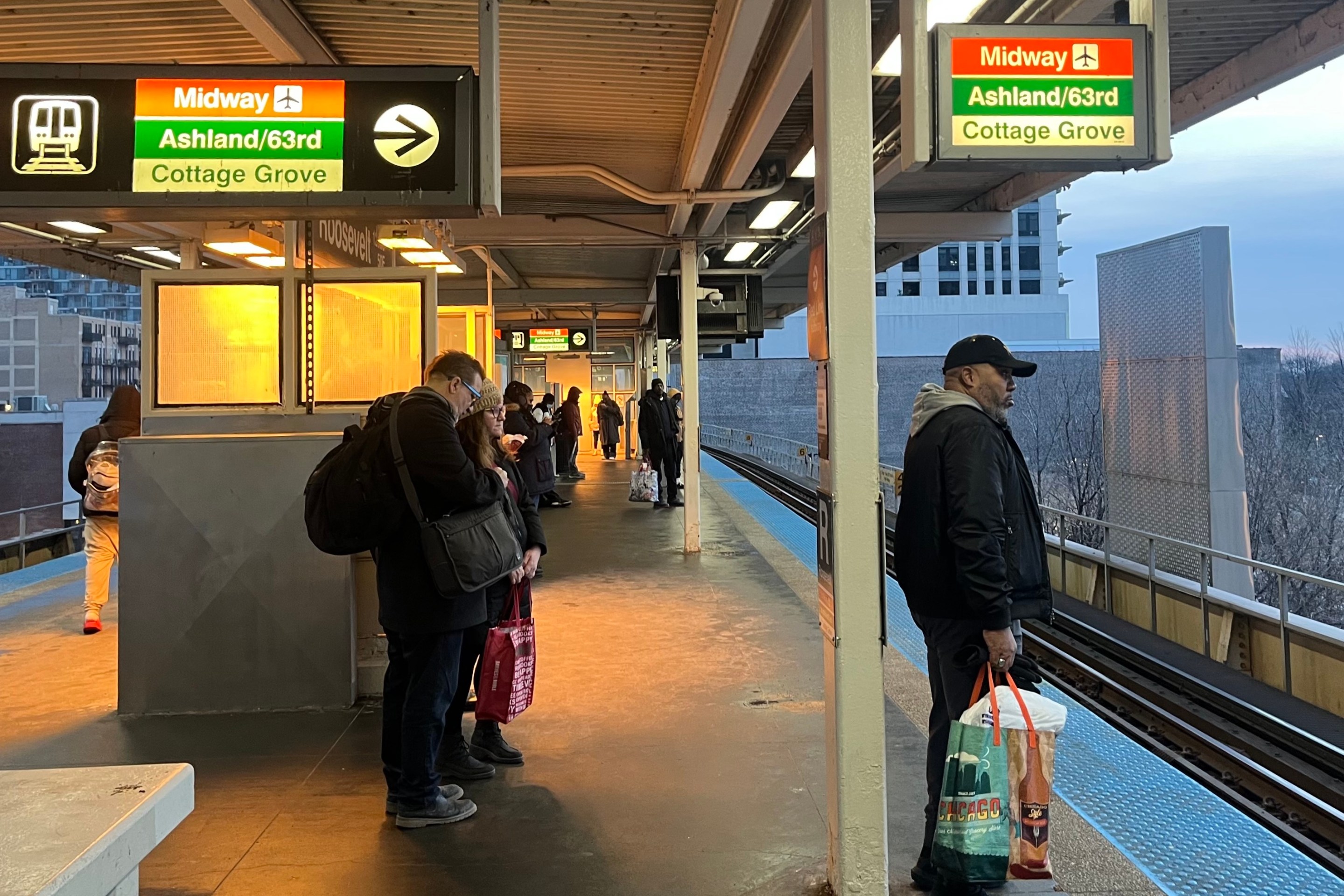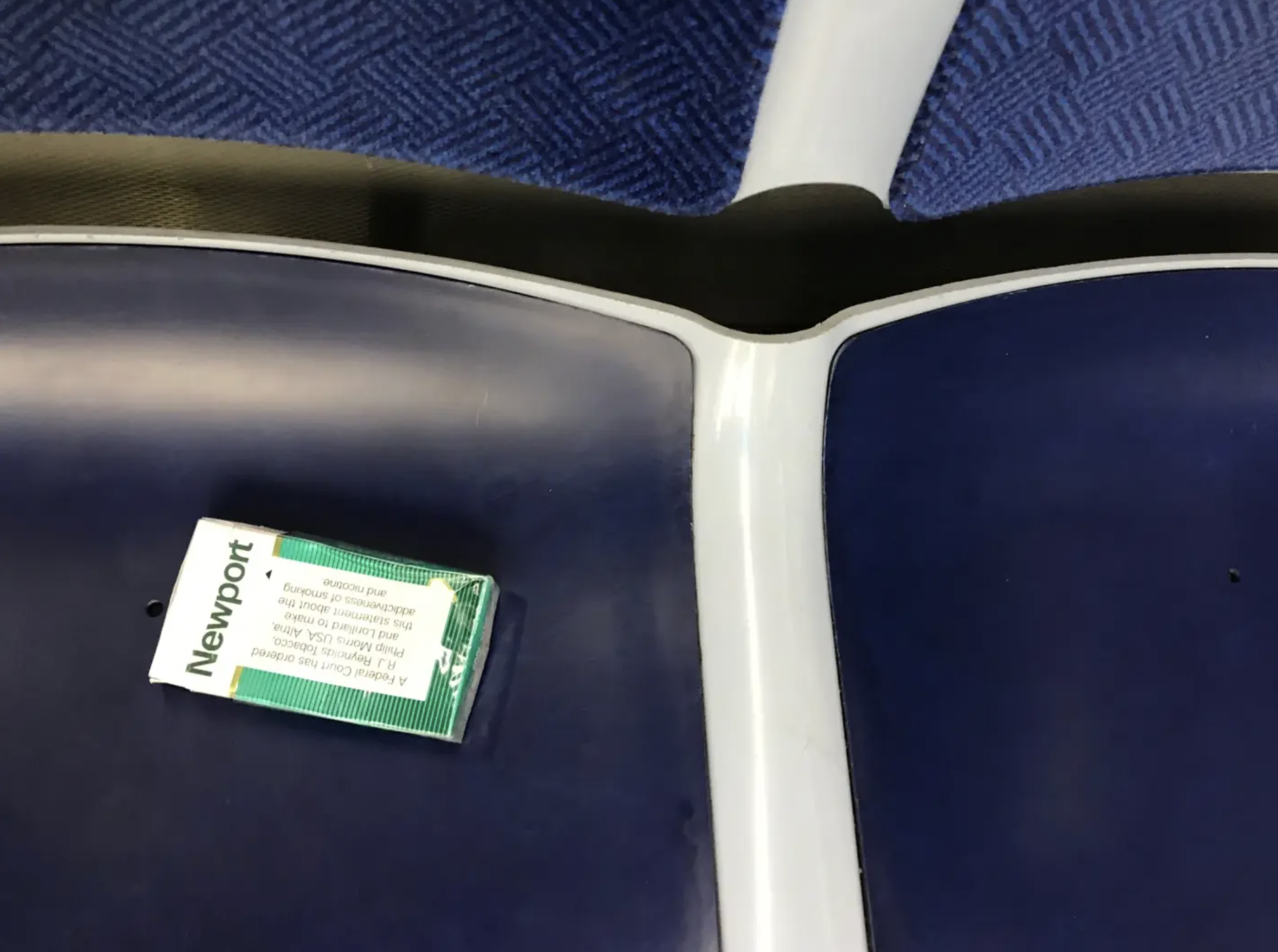When I interviewed Transportation Commissioner Gabe Klein at the June 2012 Bike to Work Rally, shortly after it was announced that bike-share would probably not launch that year, he promised, “We’ll be launching bike-share in the next six to twelve months.” It now appears that the Chicago Department of Transportation and Alta Bike Share, the contractor in charge of running the system, are making good on Klein's promise.
This morning the Chicago Department of Transportation announced it will launch the system, called “Divvy,” later this spring, likely in time for this year’s rally on Friday, June 14. Assuming New York succeeds in its plans for a 6,000-bike network, Chicago's will be the second-largest bike-share program in the nation. Divvy will start out with about 75 automated docking stations, mostly located in the Loop and River North. Within a year, CDOT hopes to install all 400 stations for 4,000 bikes across an area roughly bounded by Lake Michigan, Devon, California and 63rd.
“Bike sharing is another large step we’re taking to make Chicago the best big city in America for cycling,” said Mayor Rahm Emanuel in a statement. “We are improving our bicycling infrastructure to create the quality of life that will attract businesses and families to Chicago. Divvy bikes will provide Chicagoans and visitors with more options for getting around our neighborhoods.”
Local active transportation advocates are applauding the news. "Divvy is a big deal for Chicago, it will literally change how people get around by offering a low commitment way to try bicycling,” said Ron Burke, director of the Active Transportation Alliance. “It’s perfect for trips under a few miles that are too short to wait for a bus, and a bit too far to walk, and it will be much cheaper than a taxi. Tens of thousands of Chicagoans will be able to use it to get from transit stations to their jobs, to get to their next meeting, grab lunch or run errands.”
“Physical activity is an important part of a healthy lifestyle, and cycling is an effective way to stay active,” said Adam Becker, Executive Director of the Consortium to Lower Obesity in Chicago Children. “But not all Chicagoans have access to bicycles. Establishing a bike-share that gives greater access to more people can help Chicagoans integrate more physical activity into their lives. We’re excited to see the city taking his important step in making physical activity and health easier for Chicagoans.”
The clunky-but-comfy, step-through bikes, with generator lights, fenders, chainguards and front racks, will be painted the same shade of blue as the stripes the Chicago flag. This color scheme is attractive, but hopefully the light shade won’t also appeal to vandals with Sharpies. The name “Divvy,” which means “to divide or share” is an uncommon word which will probably be a head-scratcher for many locals, but the logo cleverly places the two Vs in the same configuration as a “sharrow” shared-lane marking.
CDOT is currently in the process of siting the stations. Lists of potential locations have been vetted by the appropriate aldermen, and the department is currently finalizing where the stations will go. Most of the wireless, solar-powered stations will have 15-19 docks, with several spaces left open for returning bikes.
Annual memberships will cost $75 and daily passes will be $7, allowing users to take an unlimited number of 30-minute trips. To encourage use of the bikes for short trips, rather than long-term rentals, additional charges will apply for the second half hour and rise steeply after that. Renting the bikes requires a credit card, and the user is liable for the replacement cost, about $1,200, if the bike is lost or stolen. CDOT is currently looking into options for providing memberships for low-income and unbanked Chicagoans.
Starting in late 2012 the department began taking suggestions for station locations via its bike program website. It received recommendations for 1,300 different sites, with 11,000 votes in support of these locations. Updates about the system will be available on Twitter at @divvybikes and on Facebook.
Predictably, the announcement has already received some backlash from Chicagoans who are unclear on the concept. Multiple readers have commented in response to this morning’s Tribune article on the subject, complaining that the estimated $22 million cost of the system, bankrolled by federal grants and money from Chicago’s Tax Increment Financing program, is a waste of funds. Instead of spending $5,500 per bicycle, they argued, why not just buy thousands of cheap cycles and sprinkle them throughout the city? Failed "free bike" programs in dozens of cities over the years have shown this approach doesn't work.
Fortunately, other readers who had experienced bike-share elsewhere wrote in to rave about the system, and to explain that the cost also includes the price of the stations, as well as expenses associated with running the program, including redistributing, maintaining and repairing the bikes. Once Divvy launches and more Chicago residents understand how the system works, I’m confident we’ll hear a little less grumbling and a lot more praise.






